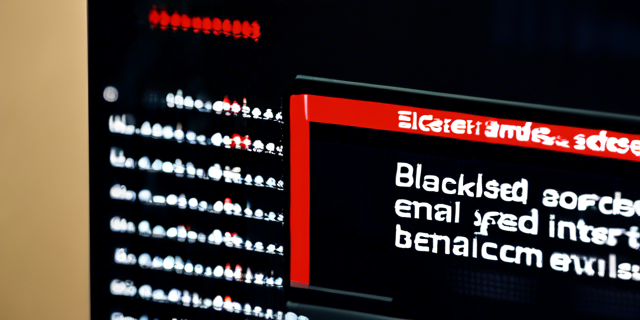
28
Navigating the Legalities of SMTP Blacklist Checks: How to Keep Your Emails Compliant
SMTP blacklist checks are essential for maintaining email deliverability, but they also come with legal responsibilities. This article explores the legal implications of checking SMTP blacklists, focusing on compliance with data protection laws and best practices. Discover how the tool available on the WebTigersAI website can help you navigate these challenges and keep your email communications compliant.
Introduction
Ensuring that your emails reach their intended recipients is a critical aspect of email marketing and communication. However, if your SMTP server is listed on a blacklist, your emails may be blocked or marked as spam, severely impacting your deliverability. Regularly checking SMTP blacklists is a crucial practice for maintaining a good email reputation, but it also involves certain legal considerations. This article delves into the legal aspects of conducting SMTP blacklist checks, focusing on compliance with data protection regulations and best practices. Plus, we’ll show you how the tool on the WebTigersAI website can help you manage and resolve blacklist issues effectively.
Understanding SMTP Blacklist Checks
An SMTP blacklist is a list of IP addresses or domains known to send spam or engage in other malicious activities. Email providers and spam filters use these blacklists to block or flag emails coming from these sources. Conducting SMTP blacklist checks helps you identify if your server is listed, allowing you to take corrective actions. However, it’s important to approach these checks with a clear understanding of the legal responsibilities involved.
Legal Considerations When Conducting SMTP Blacklist Checks
- Compliance with Data Protection Laws: When checking SMTP blacklists, you may be handling sensitive data, such as IP addresses and email server details. Under laws like the GDPR in the European Union, this data is considered personal information and must be protected accordingly. Businesses are required to implement adequate security measures to prevent unauthorized access to this data and ensure that it is only used for its intended purpose.
- Transparency and Consent: If you are conducting blacklist checks on behalf of clients or other third parties, it is essential to obtain their explicit consent. Transparency about how the data will be used and ensuring that clients are aware of the potential risks and benefits of blacklist checks is crucial for legal compliance.
- Avoiding Unauthorized Access: Accessing blacklist databases and performing checks without proper authorization can lead to legal issues. Ensure that you have the necessary permissions and that your activities are within the bounds of the law.
How the WebTigersAI Tool Can Help
Navigating the complexities of SMTP blacklist checks and staying compliant with legal requirements can be challenging. Fortunately, the tool available on the WebTigersAI website is designed to simplify this process. Our tool helps you quickly and efficiently check if your SMTP server is listed on any blacklists, providing detailed reports and guidance on how to resolve any issues. By using our tool, you can ensure that your email communications remain compliant and that your server maintains a good reputation, all while adhering to legal standards.
Best Practices for Legal Compliance
- Secure Data Handling: Implement strong security measures to protect the data involved in SMTP blacklist checks, including encryption and access controls.
- Obtain Necessary Permissions: Always ensure that you have proper authorization before conducting blacklist checks, especially when dealing with third-party servers.
- Keep Accurate Records: Document all blacklist checks and any actions taken in response to the results. This documentation can be vital for demonstrating compliance with legal requirements.
- Regular Monitoring: Regularly monitor your SMTP server’s status to ensure that it remains off blacklists and to address any issues promptly.
- Educate Your Team: Train your team on the legal implications of SMTP blacklist checks and ensure they follow best practices to avoid legal pitfalls.
Conclusion
SMTP blacklist checks are essential for maintaining email deliverability and protecting your server’s reputation, but they must be conducted with a clear understanding of the legal landscape. By adhering to data protection laws and following best practices, you can perform these checks confidently and compliantly. The tool on the WebTigersAI website is here to help you manage blacklist issues effectively, ensuring that your email communications remain secure, reliable, and legally compliant.
Contact
Missing something?
Feel free to request missing tools or give some feedback using our contact form.
Contact Us